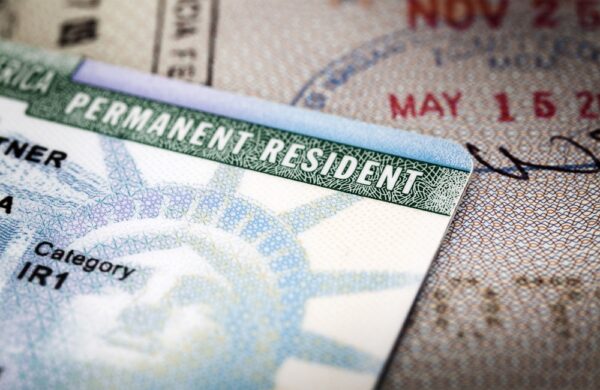Germany has one of the largest economies in the world. When you consider the universal healthcare system, affordable education, and job prospects, it's no surprise that so many people want to go to Germany. But for most people, it takes more than just packing up and going to the country. If you’re wondering how to immigrate to Germany, you’re not alone.
The process can seem challenging, from navigating visa requirements to understanding residency rules. Here, we’ll guide you through the immigration process, providing valuable insights and practical advice to help you achieve your dream of living and working in this vibrant country.
Benefits of Moving to Germany
Here are some of the advantages of relocating to Germany:
1. Work-Life Balance
Working in Germany allows you to experience a healthy work-life balance, with at least 20 days of annual vacation. There are several public holidays as well for both immigrants and German citizens, so you can unwind and recuperate from your hectic routine.
By maintaining a good balance between your personal and professional lives, you may be more productive during office hours and make the most of your time with loved ones after work.
2. Education
This will be a crucial factor to consider if you're migrating to Germany with a family. This European nation offers excellent educational opportunities at many prestigious colleges and universities. You can send your child to a local or international school, depending on your unique circumstances.
If you're moving to a university, you can study abroad and gain a degree from a top-notch institution while also discovering a lot about the globe. This can also appear positive on your resume by demonstrating your ability to adjust to new situations. The great education system makes Germany one of the most popular destinations to relocate to.
3. Great Transport System
Germany is known for its efficient transportation networks, which are extremely useful to people wishing to relocate to the country. Its infrastructure includes trams, overground lines, and well-designed, swift underground networks. High-speed trains serve urban and rural areas, benefiting foreigners who wish to live anywhere. This implies that you might live in a more tranquil place while working in a bustling metropolis.

Germany Immigration Requirement
Currently, EU/EEA citizens can enter Germany without a visa for tourism/visiting and business purposes. Although this is for stays of less than 90 days within 180 days. If you are not a national of one of the visa-exempted countries, ensure you must obtain a visa before entering Germany.
However, even if you have a passport from one of these nations and must stay in Germany for more than 90 days (for immigration purposes) for 6 months for reasons other than business or tourism, you will still need to apply for a visa.
Moving to Germany as an EU/EEA Citizen
Moving to Germany is quite simple if you are from an EU/EEA nation or Switzerland. As long as you can find somewhere to live, you can pack your belongings and leave! It is technically possible for you to work in any profession you choose without even needing a contract or work offer.
If you want to stay in Germany for more than three months, just ensure to register at the local registration office. Note that after-Brexit UK nationals seeking to relocate to Germany are likewise considered non-EU nationals.
Moving to Germany as a non-EU/EEA Citizen
Relocating to Germany might be challenging for non-EU citizens depending on their country of origin, line of job, and level of German language proficiency. It is easier if you can speak the German language, as it allows you to do well the job market.
Immigrating to Germany is also easier if you are a skilled worker in a high-demand profession (such as software development, medicine, engineering, construction, and so on).
General Requirements for German Immigration
Even though there are numerous ways to relocate to Germany, each with its own requirements, there are certain common rules. To be eligible to move to Germany, you must meet the following criteria:
- Prove your financial stability
- Have health insurance
- Have basic proficiency in the German language
- Get a German visa
Proof of Financial Stability
Applicants must meet financial requirements for each immigration reason, but regardless of their intentions, they must demonstrate their ability to support themselves in Germany. You need to have the initial funds to pay your expenses until you receive your salary, even if you want to work in Germany.
Have Health Insurance
Immigrating to Germany will not be possible if you do not have adequate health insurance. You should obtain German health insurance because you cannot be sure that German authorities will accept health insurance from other countries.
Be Proficient in German
You need to have at least basic proficiency in German to reside there. There are three language competency levels in the Common European Framework of Reference for Languages: A, B, and C. Language competency has three categories: basic (A1/A2), proficient (B1/B2), and advanced (C1/C2). You must pass the examinations up to either an A1 or a B1 to be eligible to come to Germany.
Get a German Visa
Foreign nationals must apply for and receive a German visa before entering the country. However, a visa isn't necessary for EU/EEA Countries' nationals.
How to Immigrate to Germany
You can move to Germany for over three months by choosing one of the following ways:
1. Moving to Germany for Employment
Germany has observed a scarcity of skilled workers and highly qualified professionals. They constantly search for engineers, IT experts, medical personnel, and other competent individuals. To encourage such persons to immigrate to Germany, foreign immigration officials have loosened the severe conditions for working in the country.
As a result, one of the most common reasons for immigrating to Germany is to find work. Foreigners need to apply for a work visa before relocating to the country. The steps for going to Germany for work are as follows:
- Find a job in Germany.
- Apply for the Germany Work Visa.
- Relocate to Germany and get your working residence permit.
2. Moving to Germany to Study
This is another tip on how to immigrate to Germany. In recent decades, Germany has attracted many talented students worldwide to study at one of its premier universities. The European country attracts many international students yearly thanks to its 300 educational institutions, including more than 15,000 different study programs.
You need to get a study visa to come to Germany to pursue your university degree. After obtaining your student visa at a German university and finishing your degree, you will have a brief period to stay in Germany and look for work. You can remain in Germany if you can secure employment during that period.
3. Moving to Germany for Family Reunification
After settling in Germany, many non-German residents bring their families, particularly spouses and children. In Germany, the Immigration Authorities encourage family reunification as a vital means of enabling family life, even in cases where the resident has a German family reunion residence visa rather than a permanent residence card (also known as a permanent residence permit).
The German Family Reunion visa is a long-stay visa that German residents often use to bring their family to the country. Foreign nationals who are not citizens of the EU/EEA countries will need to apply for a family reunion visa before relocating to Germany to join their family members.
Spouses must provide proof of marriage and children's birth certificates to be eligible for family reunion immigration.
Since children under the age of sixteen can pick up the language rapidly, proficiency in German is not required. However, children above the age of 16 must demonstrate sufficient German language skills and the ability to adjust and integrate.
4. Moving to Germany for Entrepreneurship
You're in luck if you're an investor interested in Germany. This is another suggestion on how to immigrate to Germany. Germany allows immigration for investors and entrepreneurs who generate economic prospects. But, you have to invest up to a particular amount of 250,000 euros. It is also necessary for you to obtain a Self Employment Visa, which is a type of Germany Working Visa. To get the visa, you have to provide proof of the following:
1. You have the necessary funds to invest
2. Your investment will benefit the economy
3. Your investment is needed in Germany
Document Requirements for Immigration Visas
- Visa application form
- Applicant's valid passport
- Travel itinerary
- Applicant's passport
- Proof of financial means
- Proof of purchased health insurance
- Applicant's visa pictures
- Proof of accommodation
- Original birth certificate
- Application form signed by both parents
- Letter of consent from a parent
- Custody court order
- Proof of marriage
Requirements for Family Reunion Visa
- Proof of German language skills
- Proof of spouse or registered partner
- Birth certificate for kids
- Proof of child's nationality
Requirements for Employment Visa
- Employment contract
- Proof of required vocational training (or professional qualification)
- Health insurance coverage
- A cover letter
How to Apply for a German Visa
Knowing how to apply for your Germany visa is also a step in learning how to immigrate to Germany. Finding the closest German embassy in your country of residence is the first stage in the visa application process. After that, you can take the following actions:
- Fill out the online visa application form.
- Compile the required documents.
- Set up an interview date at the German embassy/consulate.
- Attend the visa interview.
- Submit your fingerprints.
- Pay the visa application fee.
- Travel to Germany.
Where to Apply for a German Visa
You have to apply for a short-stay Germany visa at a German embassy in your nation of origin or one close by. But you must apply to two different places if you're hoping to obtain a long-stay visa:
A German Mission: You still need to apply for your entry visa (national D visa) at a German embassy or consulate in your home country to enter the country.
The Office of Foreigners: To obtain your residency permit after entering Germany, you must register with the Ausländerbehörde (Foreigner's Office).
Germany Visa Processing Time
The processing of your application for a Germany visa can take up to 15 business days. However, if you're applying for a long-term visa, it may take several months. Bear in mind that visa processing times vary depending on several circumstances, including the people on duty at the visa office, the season you apply for, and whether or not you send in a completed application.
Germany Visa Fee
German long-stay visas for immigrants cost €75 ($84). Although the visa fee is set in EUR, it can only be paid in GBP. The payment amount may vary from the amounts mentioned above since the German Missions set and frequently adjust the exchange rate between these currencies. Note that the receipt you receive for your visa application fee will only show the amount you paid in GBP.
Conclusion
Learning how to immigrate to Germany requires careful planning and research. By understanding the visa process, job requirements, and cultural integration, individuals can successfully navigate the journey and make Germany their new home, enjoying its rich culture, strong economy, and high standard of living.
















